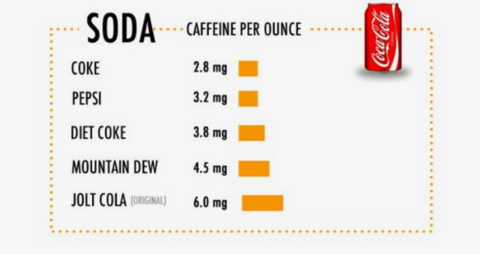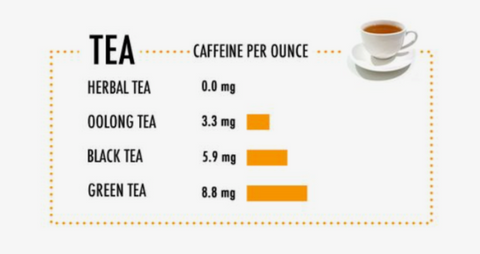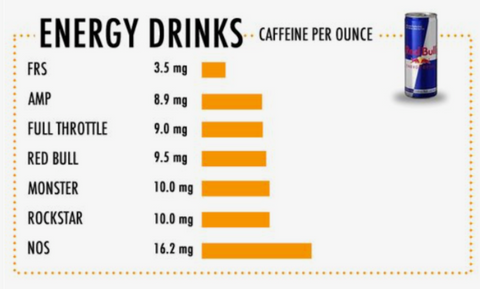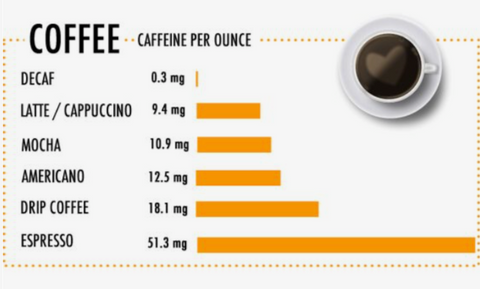
Caffeine 101: How Korean Tea and Matcha Have Less Caffeine Than Coffee and Coke
Matcha & Caffeine 101: Healthier Alternatives to Coffee
Introduction to Caffeine 101 and Matcha
In this comprehensive guide, we delve into Caffeine 101 by exploring the caffeine content in popular beverages like soda, coffee, tea, and energy drinks. We then compare these with matcha and natural Korean tea, highlighting why they are considered healthier alternatives to coffee.
The Surprising Amount of Caffeine in Common Beverages
Caffeine Content in Soda, Coffee, Tea, and Energy Drinks
Understanding the amounts of caffeine in your favorite beverages is crucial for managing your caffeine intake. Here's a breakdown:
- Coffee: A standard 8-ounce cup contains approximately 95 milligrams (mg) of caffeine.
- Cola: A 12-ounce serving has about 34 mg of caffeine.
- Tomato Juice: Contains a minimal 1 mg of caffeine per serving.
- Energy Drinks: Vary widely, typically ranging from 80 to 200 mg per can.
The Surprising Amount of Caffeine Found in a soda,coffee, tea, and energy drinks.




Caffeine Content Breakdown
Coffee
- Caffeine Content: ~95 mg per cup
- Health Impact: Quick energy boost but may cause jitteriness and anxiety if overconsumed.
Cola
- Caffeine Content: ~34 mg per 12-ounce serving
- Health Impact: Lower caffeine but high sugar content can lead to weight gain and other health issues.
Korean Green Tea
- Caffeine Content: 20-30 mg per serving
- Health Impact: Provides a mild energy boost with added antioxidants supporting immune health.
Matcha
- Caffeine Content: 20-70 mg per serving
- Health Impact: Offers sustained energy and enhanced focus with high levels of amino acids and antioxidants.
Energy Drinks
- Caffeine Content: 80-200 mg per can
- Health Impact: Can cause rapid energy spikes and increased heart rate, posing potential health risks with excessive consumption.
The Side Effects of Caffeine: What You Need to Know
While caffeine can enhance alertness and performance, excessive consumption can lead to adverse effects:
Anxiety
High caffeine intake can exacerbate feelings of anxiety and nervousness, particularly in individuals prone to anxiety disorders.
Insomnia
Caffeine can disrupt sleep patterns, making it difficult to fall asleep and maintain restful sleep.
Increased Heart Rate and Blood Pressure
Stimulates the nervous system, leading to elevated heart rate and blood pressure.
Digestive Issues
May cause acid reflux, heartburn, and stomach upset in sensitive individuals.
Dehydration
As a diuretic, caffeine increases urine production, potentially leading to dehydration if not balanced with adequate water intake.
Why Choose Matcha and Korean Tea?
Authentic Heritage and Quality
Matcha and Korean tea are steeped in tradition, originating from the Camellia sinensis plant. Matcha is meticulously ground into a fine powder, preserving its potent amino acids and antioxidants. Korean tea offers a variety of flavors and benefits, sourced from renowned estates that emphasize quality and sustainability.
Diverse Varieties for Every Taste
From the vibrant, earthy notes of matcha lattes to the subtle, calming flavors of traditional Korean blends, there's a matcha or Korean tea variety to suit every palate. Whether you prefer your tea hot with a splash of milk or iced as a refreshing beverage, these teas offer versatility and rich flavors.
Health Benefits Beyond Caffeine
Matcha and Korean tea are not just about caffeine. They are rich in antioxidants, vitamins, and minerals that support overall wellness. Matcha contains L-theanine, an amino acid that promotes relaxation and mental clarity, balancing the stimulating effects of caffeine for a calm yet alert state.
Sustainable and Eco-Friendly Practices
Choosing matcha and Korean tea often means supporting sustainable farming practices. Many tea producers prioritize organic farming, minimizing the use of synthetic fertilizers and pesticides, thereby promoting environmental health and ensuring the highest quality tea leaves.
Conclusion: Embrace Healthier Caffeine Choices with Matcha
Choosing matcha and Korean tea offers a balanced approach to caffeine intake, providing sustained energy without the harsh side effects of excessive coffee consumption. Rich in antioxidants, amino acids, and essential nutrients, these teas support both mental and physical well-being.
By incorporating matcha and Korean tea into your daily routine, you can enjoy a flavorful, health-conscious alternative to traditional caffeine sources. Whether you're brewing a ceremonial cup of matcha or enjoying a refreshing Korean tea, these beverages offer a harmonious blend of tradition, taste, and health benefits.
Start Your Matcha and Korean Tea Journey Today
Explore our curated selection of matcha and Korean tea, featuring top brands like EnzoMatcha, Kyma, and Omija. Whether you're looking to order matcha online, find the best Korean tea for relaxation, or enhance your daily wellness routine, our collection has something for every tea enthusiast.
Shop Now and experience the vibrant flavors and health benefits of matcha and Korean tea.
